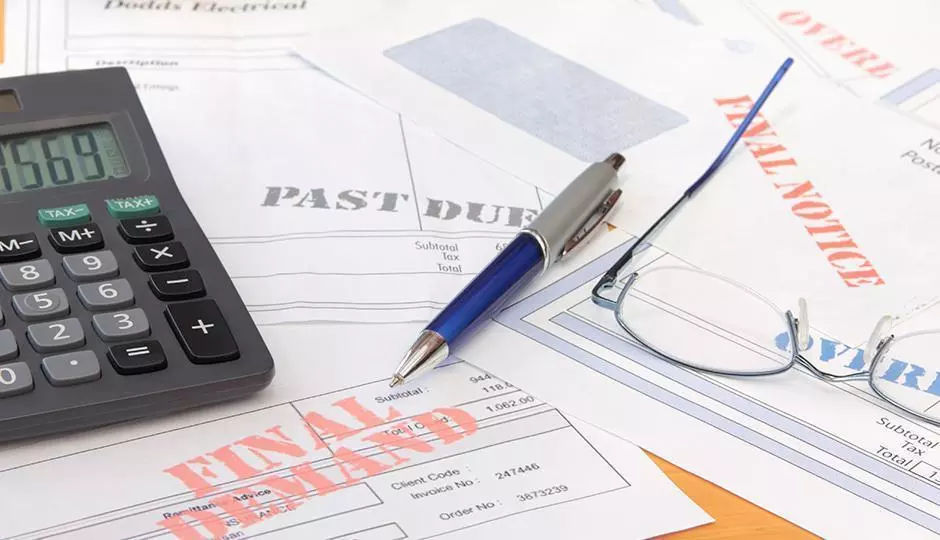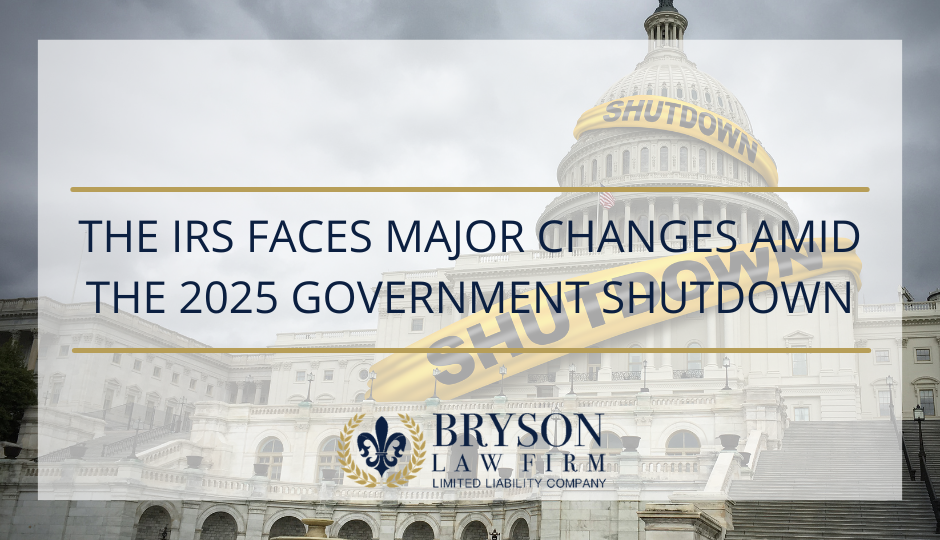
Obtaining Currently Not Collectible (CNC) Status
It’s always a stressful time when you owe tax debt and the IRS keeps calling. Being placed on Currently Not Collectible status, or CNC, can give you the breathing room you need to get through financial difficulties. But becoming classified as a CNC case is not automatic. There are a number of hoops to jump through to reach CNC status. Like we say, taxes are a legal issue, so the sooner you get a tax attorney from Bryson Law Firm, L.L.C. involved, the quicker we can find a solution for you or your small business.
Benefits of Currently Not Collectible Status
CNC status allows you to get the IRS off your back. However, you should view your CNC status as a temporary fix, not a total solution to your tax issues. When your financial situation changes, your CNC classification may also change.
One of the biggest benefits of CNC status is that it helps you get back on your feet by delaying your payments until a later date. Keep in mind, though, that interest and penalties will still accrue on your tax bill. CNC status also prevents or removes any levies that the IRS may place on your wages or bank accounts. In fact, in some cases we’re able to get the IRS to refund previously levied funds.
But the IRS may still place liens on your assets, which can have a negative effect on your credit rating. The IRS has 10 years from the date you first owed back taxes to collect the taxes, interest, and penalties from you, so if your CNC status takes you beyond the 10-year mark, your tax bill disappears.
How to Gain CNC Status With the IRS
You may be thinking currently not collectible status sounds great, so why doesn’t everybody do it? First, you have to be in dire financial straits to qualify. How does the IRS determine that? You will need to provide financial documentation of your financial situation to demonstrate your hardship. The IRS looks at your “reasonable living expenses.” They take into account whether your expenses equal or exceed your income. The IRS may review your income, expenses, and assets regularly to determine if you still qualify as a CNC case.
The IRS will also stipulate that you file any missing tax returns to obtain a clearer picture of your taxes owed. It’s also important to file your returns on time in order to avoid late penalties.
But you can’t be living an extravagant lifestyle while being on the CNC list. The IRS has established maximum amounts that can go toward certain living expenses that they refer to as “Collection Financial Standards. They include limits on expenditures on:
- Food
- Clothing
- Rent
- Car payments
- Utilities
- Other living expenses
The IRS adjusts the dollar limits on the Collection Financial Standards from time to time, so we can discuss the current maximums during your free initial consultation with Bryson Law Firm, L.L.C. But beware, the IRS will scrutinize your expenses if you go over the limits.
If for some reason your CNC status is not approved, we still have recourse. We can request a meeting with the collection agent’s supervisor, or appeal the decision to the regional Appeals Office.
Limitations of Currently Not Collectible Status
As we mentioned, your penalties and interest keep accruing while you’re in CNC status. The IRS may also seize any tax refunds you may be due and apply them to your tax bill. Of course, we also hope your financial situation will improve. When the IRS places you on the CNC list, they enter what they refer to as the Closing Code.
The Closing Code is the amount of income you can make before the IRS comes knocking again. For instance, let’s say you make $40,000 when you’re placed on CNS status, and the IRS sets your Closing Code at $45,000. Once your income hits or exceeds that amount, the IRS will remove you from CNC status and begin collection proceedings again.
We Give You Options
At Bryson Law Firm, L.L.C. we don’t focus on a single solution to your tax problem. We look at your whole financial picture to formulate a game plan between you and the IRS. We consider other options that can eliminate your tax bill altogether, such as an Installment Agreement or an Offer in Compromise.
If those solutions aren’t financially feasible, we can explore Currently Not Collectible (CNC) status as another route. Whether you’re in Louisiana, Texas, Alabama, or anywhere across the U.S., our team is here to guide you through every option. To discuss the paths available for resolving your tax issue, don’t call the IRS. Call or click to set up your free initial consultation with a tax attorney at Bryson Law Firm, L.L.C.























